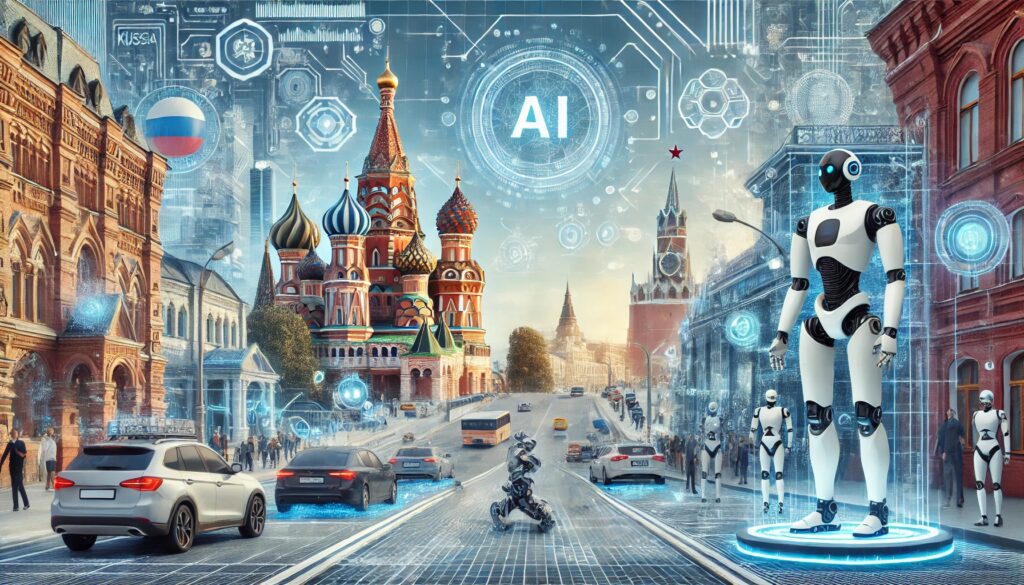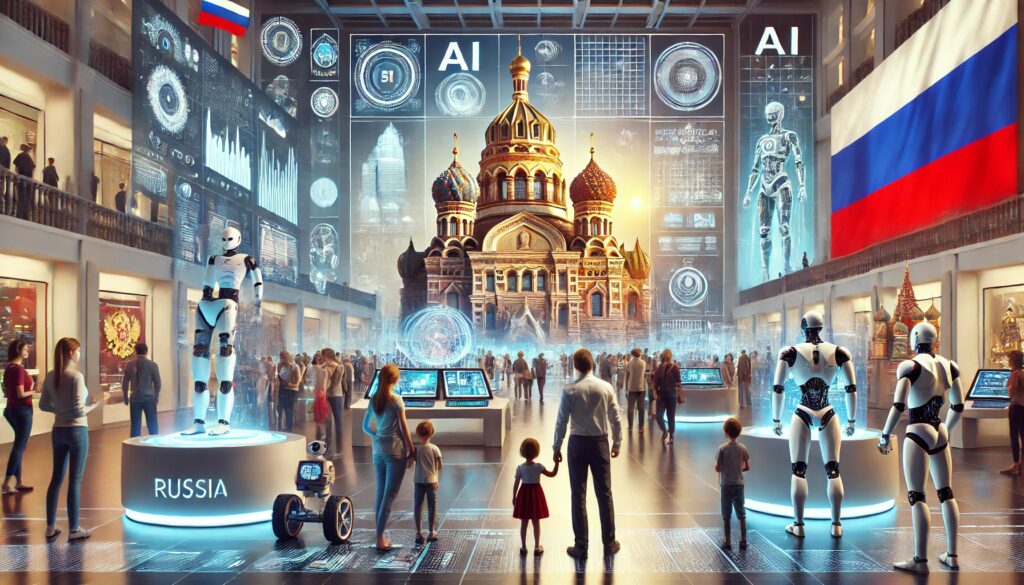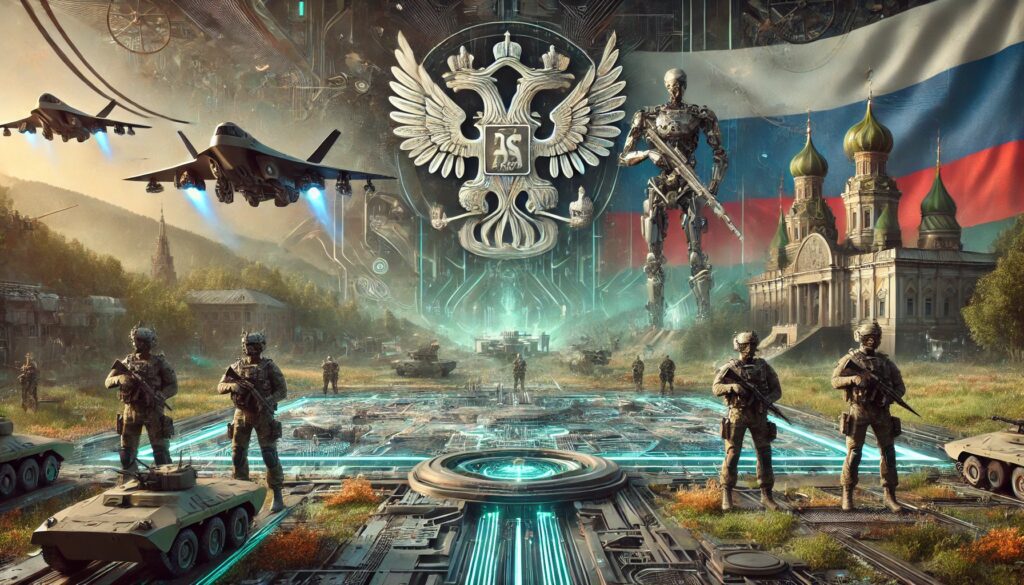
Government Initiatives and Policies
Russia’s national AI strategy, established in 2019, aims to position the country as a global leader in artificial intelligence by 2030. This strategy sets both short-term milestones to be achieved by 2024 and long-term objectives for 2030, focusing on boosting AI research, improving infrastructure, and fostering international cooperation. The Russian government has committed substantial funding, with 244 billion rubles allocated through 2024, to support AI development across various sectors.
Academic Contributions
Russian universities and research institutions are pivotal in advancing AI technologies. Institutions like Moscow State University and the Skolkovo Institute of Science and Technology (Skoltech) are at the forefront, contributing significantly through research and collaboration with industry partners. These collaborations are crucial for translating academic research into practical AI applications, driving innovation in sectors ranging from healthcare to finance.
AI Research Centers
Key AI research centers, such as those within Skolkovo, focus on cutting-edge projects that push the boundaries of AI capabilities. These centers have achieved major breakthroughs in fields like autonomous systems, cybersecurity, and medical imaging. Skoltech, in particular, has become a hub for AI innovation, leveraging its resources and expertise to foster a dynamic research environment.
Applications and Industry
AI in Healthcare
In the healthcare sector, AI is revolutionizing diagnostics, treatment plans, and overall healthcare management. Russian hospitals and clinics increasingly use AI-driven technologies for medical imaging and personalized medicine, enhancing the accuracy and efficiency of patient care. These advancements help in early disease detection and tailored treatment strategies, ultimately improving patient outcomes.
AI in Security and Defense
The application of AI in national security is a high priority for Russia. AI technologies are being integrated into surveillance systems, cybersecurity frameworks, and autonomous military systems. However, this rapid development raises ethical concerns and international debates about the use of AI in military contexts, especially regarding autonomous weapon systems.
AI in Transportation
AI is also transforming the transportation industry in Russia, with significant progress in autonomous vehicles and intelligent transportation systems. Case studies highlight the use of AI in logistics and public transportation to enhance efficiency and safety, reducing traffic congestion and improving overall mobility in urban areas.
AI in Finance
Russian banks and financial institutions are leveraging AI for fraud detection, trading algorithms, and customer service. AI helps in identifying fraudulent activities in real-time, optimizing trading strategies, and providing personalized financial services. The regulatory landscape is evolving to support the safe and effective deployment of AI in finance, balancing innovation with security and compliance.

Challenges and Ethical Considerations
Data Privacy and Security
One of the significant challenges in AI development is ensuring data privacy and cybersecurity. The Russian government has implemented regulations to protect personal data in AI applications, but the rapid pace of AI adoption necessitates continuous updates to these measures. Ensuring robust data security protocols is essential to prevent breaches and maintain public trust.
Ethical AI
The ethical concerns surrounding AI, such as bias, transparency, and accountability, are critical issues that Russia is addressing. Initiatives aimed at promoting responsible AI practices include developing guidelines for ethical AI usage and fostering a culture of transparency in AI development and deployment.
Talent Development
Nurturing AI talent is vital for sustaining growth in the AI sector. Russia is investing in education and training programs to equip the next generation of AI experts with the necessary skills. International collaborations and partnerships further enhance AI expertise, providing opportunities for knowledge exchange and joint research projects.
Opportunities and Future Directions
AI Startups and Innovation
Promising AI startups in Russia are making significant contributions to various industries, supported by a robust innovation ecosystem that includes incubators and venture capital. These startups are driving AI innovation, developing new solutions that address industry-specific challenges and opportunities.
International Collaborations
Partnerships between Russian AI entities and international organizations are crucial for advancing AI research and commercialization. Global cooperation helps in sharing best practices, accessing diverse datasets, and fostering innovation through collaborative efforts.
AI in Agriculture
AI is increasingly being used in precision farming, crop monitoring, and agricultural robotics in Russia. These technologies enhance productivity, reduce waste, and address food security challenges by optimizing resource use and improving crop yields.
AI for Social Good
Artificia intelligence projects aimed at tackling social issues, such as education, public health, and environmental protection, demonstrate the potential of AI for social good. AI is also playing a role in disaster response and management, providing tools for better prediction, preparation, and response to natural disasters.
Future Trends
Looking ahead, the future of AI in Russia is promising, with trends pointing towards increased integration of quantum computing and other emerging technologies. These advancements could significantly enhance AI capabilities, driving new applications and further solidifying Russia’s position in the global AI landscape.

AI in National Security and Defense
Russia is making big strides in using AI for national security. The Russian military uses AI in drones, surveillance, and cybersecurity. These technologies help Russia stay ahead in defense. For example, the Uran-9 robotic system and the S-70 Okhotnik-B drone are key AI tools. They can operate with little human help, giving Russia a big edge in military operations.
During the Tsentr 2019 exercises, Russia showed how AI can speed up decision-making. This speed is a huge advantage over NATO forces. Such advancements highlight AI’s crucial role in Russia’s military strategy.
AI in Cyber Warfare
In the cyber world, AI is a powerful tool for Russia. It helps in conducting cyber-attacks, spying, and spreading disinformation. AI can automate these tasks, making them more effective and harder to trace.
Russia uses AI-powered malware and phishing attacks to break into secure networks and steal data. AI also helps analyze data from these attacks to find weak spots and improve defenses.
Samantha Hoffman, an analyst at the Australian Strategic Policy Institute (ASPI), highlights AI’s role in cyber warfare. She explains that Russia employs AI to enhance the sophistication of its cyber-attacks. AI-powered tools can automate attacks, making them more persistent and harder to counter. Hoffman warns that these capabilities are not only a threat to national security but also to critical infrastructure globally

The role of AI in Russia’s military
AI is playing an increasingly significant role in Russia’s military strategy and operations, reflecting broader trends in military modernization and technological advancements. Here are some key aspects of how AI is being integrated into Russia’s military:
Autonomous Systems and Drones
Russia has been investing heavily in autonomous systems, including unmanned aerial vehicles (UAVs), ground vehicles, and underwater drones. These systems are being enhanced with AI to improve their autonomy, navigation, and targeting capabilities. For instance:
- Orion UAV: An example of a drone that can perform reconnaissance and combat missions, with AI enabling more precise targeting and mission execution.
- Uran-9: A combat robotic vehicle equipped with AI for navigation and combat functions, allowing for operations in hazardous environments without risking human lives.
Cyber Warfare and Information Operations
AI is critical in cyber warfare, enhancing capabilities in both offensive and defensive operations. AI helps in identifying vulnerabilities, launching sophisticated cyber attacks, and defending against cyber threats. Additionally, AI-driven algorithms are used in information warfare to spread disinformation and propaganda more effectively.
Decision Support Systems
AI is being utilized to develop advanced decision support systems that aid military commanders in making strategic and tactical decisions. These systems can analyze vast amounts of data from various sources, providing insights and recommendations to enhance decision-making processes.
Intelligence, Surveillance, and Reconnaissance (ISR)
AI enhances ISR capabilities by processing and analyzing data collected from various sensors and platforms. This includes satellite imagery, signals intelligence, and electronic warfare data. AI algorithms can identify patterns, track movements, and predict enemy actions with greater accuracy and speed.
Electronic Warfare
AI is integrated into electronic warfare systems to improve the detection and jamming of enemy communications and radar signals. These systems can adapt in real-time to changing conditions on the battlefield, making electronic warfare more effective.
Military Logistics and Maintenance
AI-driven logistics systems optimize supply chains, ensuring timely delivery of equipment and supplies. Predictive maintenance systems use AI to monitor the condition of military hardware and predict failures, reducing downtime and improving readiness.
Training and Simulation
AI-powered simulation systems provide realistic training environments for soldiers, enhancing their preparedness for various combat scenarios. These systems can simulate complex battlefields, allowing for training in a wide range of situations without the need for live exercises.
Strategic Implications
The integration of AI in Russia’s military has significant strategic implications:
- Force Multiplier: AI technologies can act as a force multiplier, enhancing the capabilities of the Russian military and compensating for numerical disadvantages.
- Asymmetric Warfare: AI can enable more effective asymmetric warfare tactics, allowing Russia to exploit the vulnerabilities of technologically advanced adversaries.
- Deterrence: The development of AI-enabled military systems can enhance Russia’s deterrence posture by showcasing advanced capabilities to potential adversaries.
Economic Competitiveness
Russia sees AI as a way to boost its economy and reduce reliance on Western technology. By investing in AI research, Russia aims to become self-sufficient and innovative.
AI is used in finance, healthcare, and transportation to improve efficiency. For instance, Russian banks use AI for fraud detection and trading. In healthcare, AI helps with diagnostics and personalized medicine, making treatments more accurate.
Alexey Kudrin, the head of the Russian Accounts Chamber, underscores the importance of AI in boosting Russia’s economic competitiveness. Kudrin argues that AI can drive innovation and efficiency in key sectors like finance and healthcare. He believes that significant investments in AI research and development are essential for Russia to reduce its dependency on Western technologies and to foster a robust domestic tech ecosystem
Political Influence and Propaganda
AI is also a tool for political influence. Russia uses AI to create and spread disinformation, manipulate social media, and sway public opinion. AI-driven bots and fake news can amplify pro-Russian messages and cause division in Western countries.
During elections and political events, Russia uses AI to target people with specific messages, influencing outcomes and undermining democracy.
Nina Jankowicz, a disinformation expert at the Wilson Center, discusses how AI amplifies Russia’s disinformation campaigns. She explains that AI-driven bots and algorithms can spread fake news and propaganda more effectively, targeting specific demographics to influence public opinion. Jankowicz notes that during election cycles, these AI tools are particularly potent in creating division and distrust within Western societies
Ethical and Regulatory Challenges
Using AI in these ways raises ethical and regulatory questions. Issues like data privacy, bias, and accountability are major concerns. Russia lacks transparent rules for AI, which can lead to misuse.
Globally, there’s a debate about using AI in military contexts. The fear of an AI arms race makes it crucial to have international rules and agreements to ensure AI is used ethically.
Noel Sharkey, a professor of AI and robotics at the University of Sheffield, raises ethical concerns about AI’s use in military and surveillance applications. He stresses the need for international regulations to prevent the misuse of AI, particularly in autonomous weapons systems. Sharkey advocates for a global framework to ensure that AI is developed and used ethically, balancing innovation with human rights
Conclusion
Russia’s journey in AI development is marked by significant government support, robust academic contributions, and innovative applications across various sectors. While challenges such as data privacy, ethical considerations, and talent development persist, the future of AI in Russia looks bright with numerous opportunities for growth and international collaboration. As AI continues to evolve, it will undoubtedly play a pivotal role in shaping Russia’s technological and economic landscape in the years to come.
For further reading on Russia’s AI initiatives and policies, you can explore the following sources:





